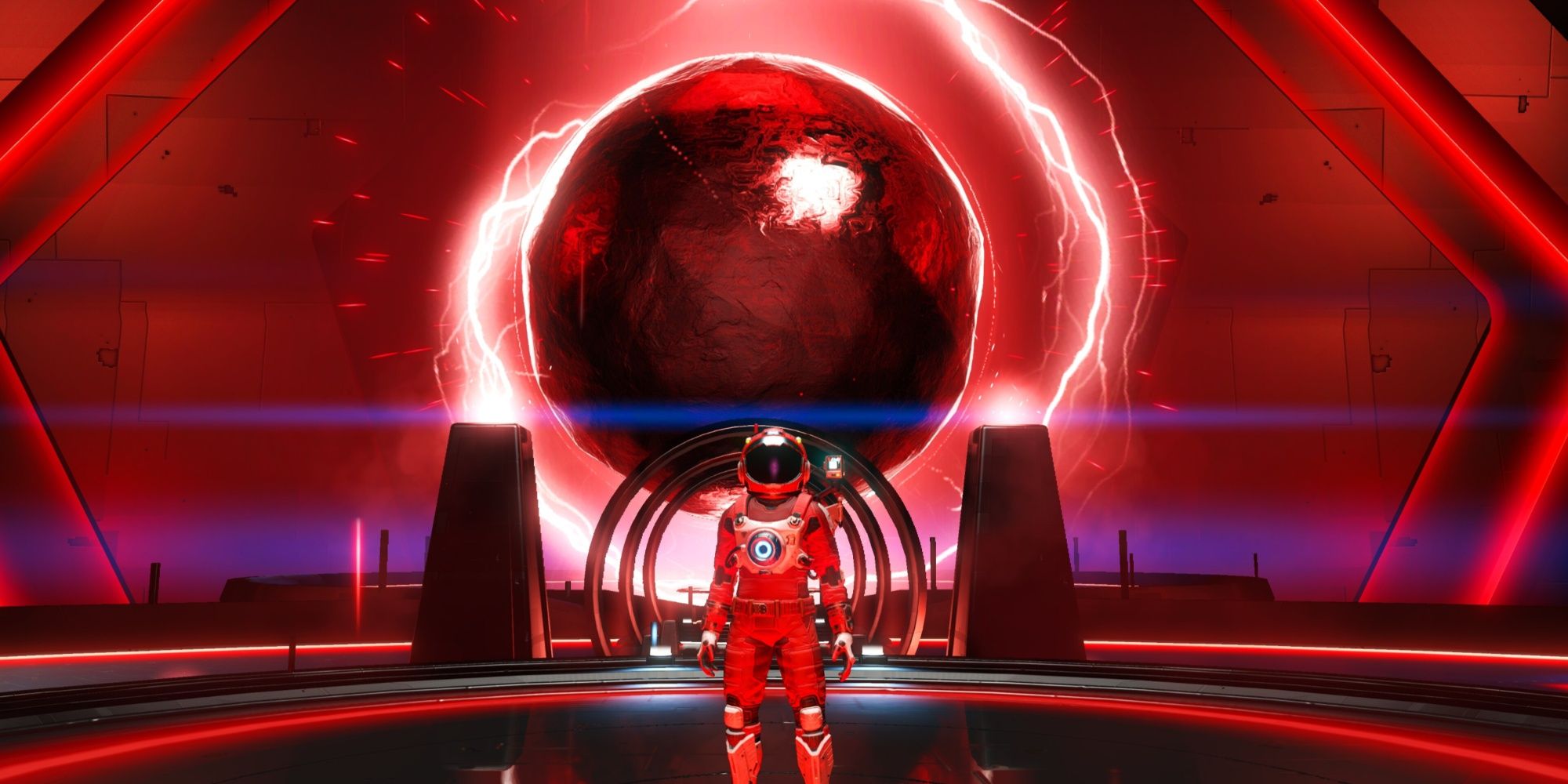No Game Deserves Its Redemption Arc More Than No Man’s Sky

No Man’s Sky was never a failure. The indie gem was first unveiled in 2013 and quickly grew into one of the most anticipated titles in the medium. But a neverending universe ripe with an endless stream of planets was too good to be true, an unfortunate reality that dawned on us with the release of each new trailer. Hello Games’ Sean Murray was brought on stage at the Sony E3 press conference for a number of years to showcase this procedural darling, but it was never clear, beyond the uncompromising scope, exactly what we’d do in the game itself.
The bland truth of hopping from planet to planet in search of resources to keep on travelling to different systems was obfuscated until the very last moment, because deep down, I think Hello Games knew it wasn’t especially interesting. I still treasure the melancholic vastness of the original release, but it quickly gave way to a tedious user interface and gameplay foibles that put rubbish item management above the joy of exploration. After millions picked it up at launch, we walked away and waited for things to improve. But I don’t think anyone expected a turnaround this drastic, or that it would still be trucking along to this very day.
Since its 1.0 launch in 2016, No Man’s Sky has received a grand total of 38 significant updates, not to mention ports to platforms and free upgrades for PS5 and Xbox Series X/S.
After its reveal thrust No Man’s Sky into the stratosphere, suddenly there were expectations that Hello Games never anticipated, and had pressure to meet after a marketing partnership with Sony essentially turned it into a first-party developer. Promises were made that were destined to be broken, while Murray and friends continually danced around the awkward talk of what No Man’s Sky was beyond having millions of planets and loads of aliens that happened to look like weird butt plugs. By the time we had an explanation ready, it was too late.
The game became a poster child for dishonest marketing and underwhelming releases, and this reputation for years seemed impossible to shake. But instead of trying to sell us massive expansions for additional pennies or continuing to make unreasonable promises, Hello Games went quiet for a number of months and only broke cover when it had something to show. To me, it feels like this added time was used to construct the foundations of a game it wanted to make all this time. Coincidentally, that was also the name of its first major update.
Foundations wasn’t a quick fix to all of its problems, but a self-proclaimed first step towards a brighter future. Many of its issues remained, but the addition of a narrative gave us a reason to reach towards the centre of the universe, and a handful of quality of life improvements gave us reason to care about No Man’s Sky again. After pulling only a fraction of us back in, Hello Games knew it had the leeway to keep on pushing. And so it did, and never once stopped.
What you have now when booting up No Man’s Sky is almost unrecognisable, and a little bit overwhelming to returning players who haven’t touched it since launch. The solitary spacer is now outfitted with comprehensive multiplayer, an extensive crafting system, alongside a laundry list of pilotable mechs and other vehicles beyond your standard ship. Creatures you stumble across are also more varied, living up to initial trailers and at times surpassing them.
The list of significant additions is exhausting, and has shown no signs of slowing even seven years later. It was only at The Game Awards earlier this month that Hello Games decided to break cover on precisely what its next project will be. Light No Fire takes place on what Murray describes as a ‘multiplayer earth’, in which players will gather resources, build new homes, and survive with one another. Judging by the aesthetic and familiar iconography, I’m guessing it also takes place in the same universe. It looks promising, and I love the mixture of classic fantasy and surrealist sci-fi elements blending together, helping to create a visual identity we haven’t seen in the genre before.
Putting aside all the giant birds you can ride and myriad fantasy landscapes to uncover though, the most exciting thing about Light No Fire is how Hello Games has, through years of hard lessons and welcome victories, has learned to take its time. To listen to the community and craft a game that not only lives up to their creative ambitions, but exactly what players want to see from a fundamental evolution of No Man’s Sky. But also a game that is slightly more restrained, or at least wants to focus on a singular planet with endless variety instead of a universe with no end in sight.
It’s sobering to watch Hello Games change from a laughing stock to an industry darling due to nothing more than its own hard work and a willingness to own up to past mistakes. Years were spent crafting and releasing content updates for free that could have easily justified the price of full expansions, but through goodwill and creative passion, they were rolled out for all with no strings attached. It was merely an invitation to bring yourself back into the fold and, if you were so inclined, to stick around and stick with the developer for the foreseeable future.
I’m right there along with them, and can’t wait to see where Hello Games goes next.
Next: Batman: Arkham Trilogy's Nintendo Switch Port Is Insulting













